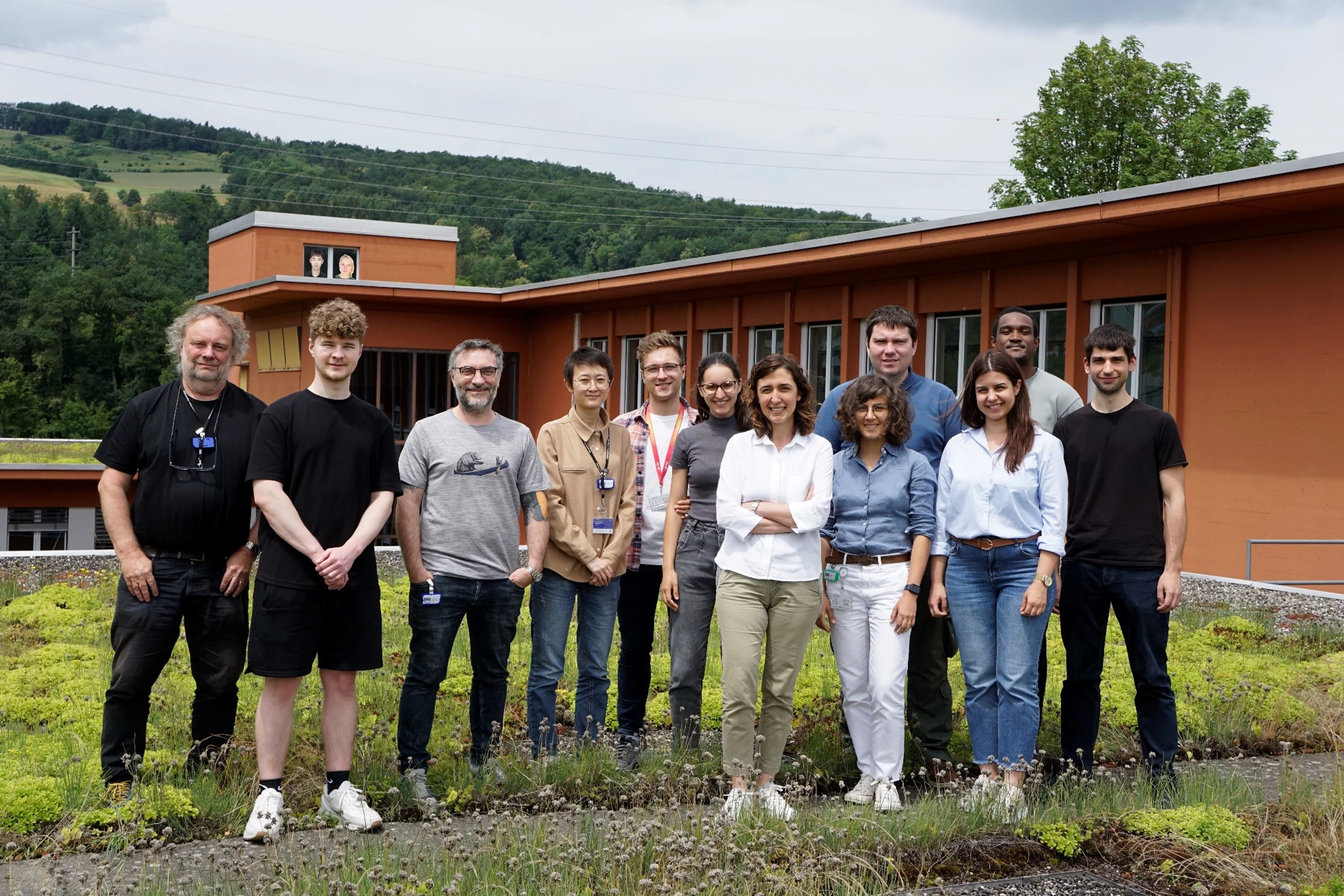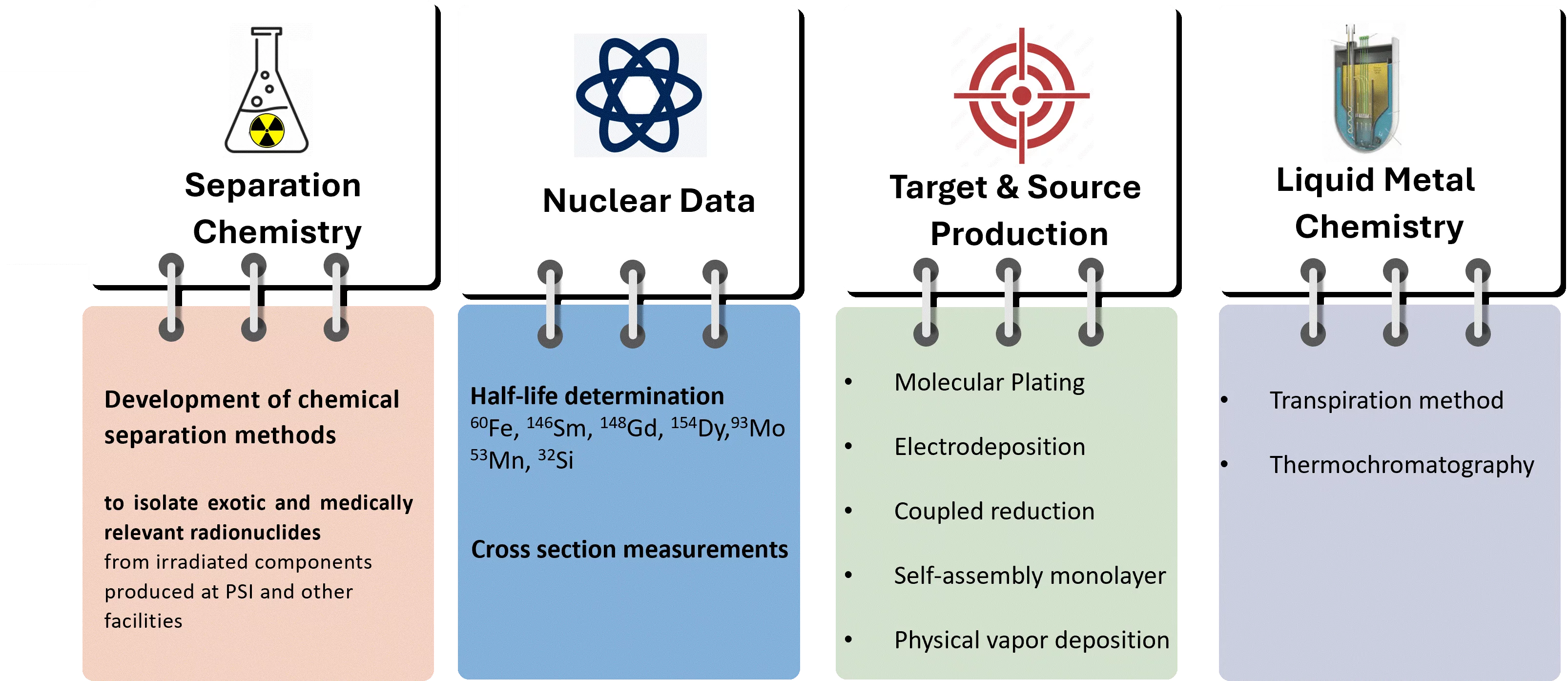Isotope and Target Chemistry group addresses a broad spectrum of fundamental and applied research topics, including the production of radionuclides for innovative radiopharmaceuticals, supporting advances in nuclear medicine and targeted cancer therapy; target and source preparation for experiments in nuclear data and astrophysics, enabling high-precision studies of nuclear reactions and stellar nucleosynthesis; the development of advanced chemical separation techniques for the purification and analysis of radionuclides and studies on the behavior of radionuclides in liquid metals, essential for evaluating safety aspects of next-generation neutron sources and fast-spectrum nuclear reactors.


